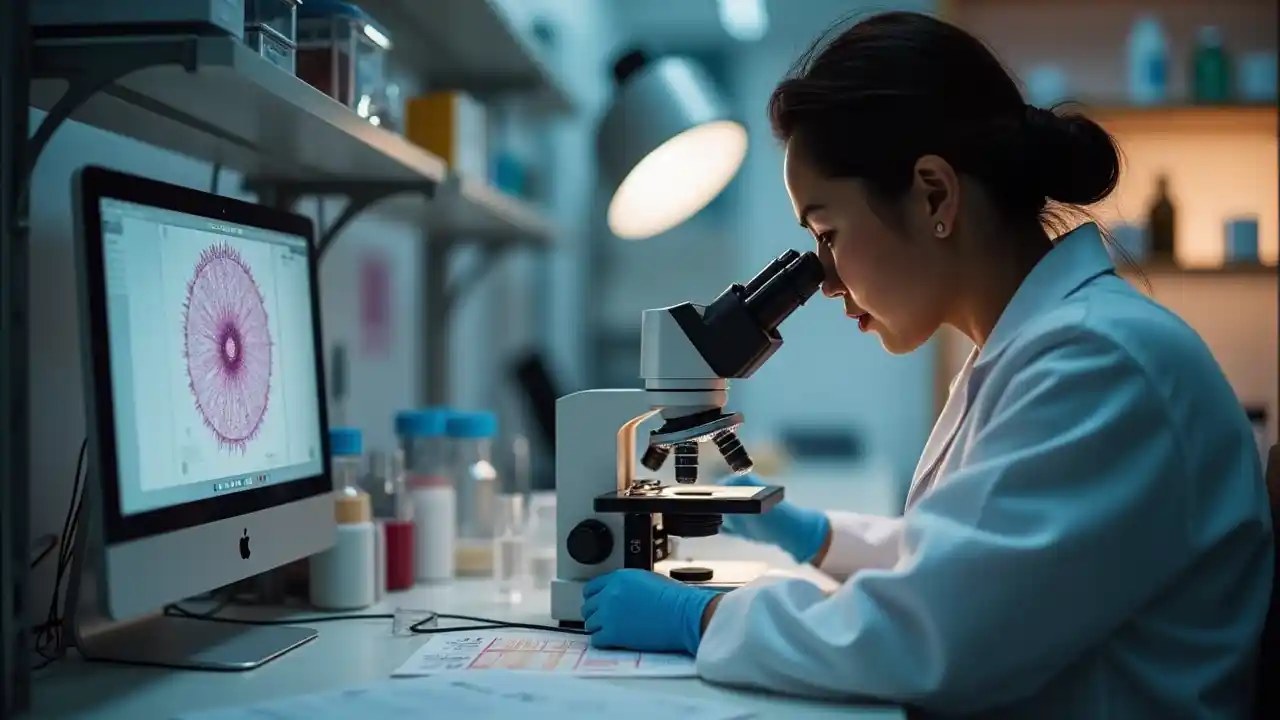Indonesia is stepping up its fight against tuberculosis (TB), one of the nation’s deadliest diseases, by hosting clinical trials for a promising new vaccine candidate, M72/AS01E, backed by the Gates Foundation. The initiative, which gained renewed attention following a recent meeting between Microsoft co-founder and philanthropist Bill Gates and Indonesian President Prabowo Subianto on May 7, 2025, at the Merdeka Palace in Jakarta, underscores the country’s determination to address a public health crisis that claimed over 130,000 lives in 2023 alone.
A Critical Health Challenge
Tuberculosis remains a formidable challenge in Indonesia, with the World Health Organization (WHO) reporting approximately 1.1 million cases in 2023. The disease disproportionately affects teens and adults, who are key transmitters, yet the current BCG vaccine—used for decades—offers only partial protection to infants and young children against severe forms of TB. It provides little defense for older age groups, leaving a significant gap in immunization strategies. The development of M72/AS01E, which has shown a 50 percent efficacy rate in preventing active TB in adults with latent infections during phase 2b trials, could mark a turning point.
The urgency of this issue cannot be overstated. TB is not just a health concern but a socioeconomic burden, impacting workforce productivity and straining public health systems. Indonesia, as one of the world’s highest TB burden countries, stands to gain immensely from a successful vaccine rollout, potentially saving tens of thousands of lives annually and reducing the economic fallout of widespread illness.
Clinical Trials: A Rigorous Process
The M72/AS01E vaccine candidate has undergone extensive testing prior to its arrival in Indonesia. According to Health Ministry spokesperson Aji Muhawarman, the trials are conducted under strict oversight by multiple bodies, including the WHO, Indonesia’s Food and Drug Monitoring Agency (BPOM), and national and international TB experts. “Everything is closely monitored” he assured, as reported by Tempo.co on May 13, 2025, emphasizing the professionalism and safety protocols in place.
The vaccine’s journey began with animal testing, followed by phase 1 human trials involving small groups of 20 to 50 participants. Phase 2 expanded to up to 300 participants, with trials conducted in high-burden countries like South Africa, Kenya, and Zambia on individuals aged 18 to 50. Data from the phase 2b study revealed encouraging results, with a two-dose regimen reducing the onset of active TB by half among adults with latent infections. Now, as the vaccine enters its third and final phase—ongoing since March 2024—it will be tested on tens of thousands of participants across multiple countries, including Indonesia.
This final phase is crucial. It will determine whether M72/AS01E can be safely and effectively rolled out on a larger scale, potentially complementing or even surpassing the BCG vaccine’s impact. For Indonesia, participation in this stage is not just about access to a new tool but also about ensuring the vaccine’s suitability for its diverse population, as genetic factors can influence efficacy.
Strategic Partnerships and National Interests
Health Minister Budi Gunadi Sadikin has articulated a broader vision for Indonesia’s involvement in the trials. Beyond public health benefits, hosting the trials offers strategic advantages. “Participating in the trials would allow the government to gain access to the technology” he stated, as quoted by Kompas.id, highlighting the involvement of researchers from prominent Indonesian institutions like Padjadjaran University and the University of Indonesia. This collaboration could position Indonesia at the forefront of TB vaccine research in the region.
Moreover, Sadikin noted that providing a platform for these trials enhances Indonesia’s leverage in future negotiations to secure contracts for local production of the vaccine. Such a move could reduce dependency on foreign supply chains, lower costs, and ensure faster distribution within the country. It also aligns with President Prabowo Subianto’s administration’s focus on self-reliance and technological advancement, themes that resonated during his meeting with Bill Gates earlier this month.
During their discussion at the Merdeka Palace, President Prabowo expressed appreciation for the Gates Foundation’s commitment to eradicating TB in Indonesia. The foundation, chaired by Gates, has been a key funder of the M72/AS01E development, channeling significant resources into global health initiatives. Prabowo’s endorsement signals high-level political support for the trials, potentially accelerating bureaucratic processes and public acceptance of the vaccine if it proves successful.
Public Health and Global Implications
Indonesia’s participation in the M72/AS01E trials is a microcosm of a larger global effort to combat TB, a disease that affects over 10 million people worldwide each year. The Gates Foundation’s involvement underscores the importance of public-private partnerships in addressing health crises that transcend national borders. By funding and facilitating research in high-burden countries, the foundation not only advances scientific progress but also fosters international collaboration.
Yet, questions linger about the vaccine’s long-term impact and accessibility. While phase 2b results are promising, a 50 percent efficacy rate—though significant—means that half of those vaccinated may still develop active TB. Researchers will need to refine the vaccine or develop complementary strategies to close this gap. Additionally, if approved, the cost of production and distribution must be managed to ensure affordability, especially in low- and middle-income countries like Indonesia where TB prevalence is highest.
Public sentiment, as gauged from discussions on platforms like X, reflects a mix of hope and skepticism. Many Indonesians welcome the prospect of a new vaccine, citing the devastating toll of TB on families and communities. Others, however, express concern about the safety of clinical trials, recalling past controversies surrounding foreign-funded medical research in developing nations. The Health Ministry’s dismissal of safety concerns, backed by rigorous oversight, aims to address these fears, but sustained public engagement will be critical to building trust.
Indonesia’s Role in a Global Fight
Indonesia’s decision to host the phase 3 trials places it at the center of a pivotal moment in TB research. With over 1 million cases annually, the country is not just a testing ground but a potential blueprint for how the vaccine could be implemented in other high-burden regions. Success here could inspire similar initiatives across Southeast Asia, where TB remains a persistent threat.
The involvement of local researchers also highlights an often-overlooked aspect of such trials: capacity building. By partnering with international experts, Indonesian scientists gain invaluable experience and access to cutting-edge technology, strengthening the nation’s health research infrastructure. This knowledge transfer could have ripple effects, enabling Indonesia to tackle other endemic diseases with greater confidence and expertise.
Financial considerations add another layer of complexity. While specific funding details for the trials in Indonesia remain undisclosed, the Gates Foundation’s global health investments often cover significant portions of research costs. If local production becomes a reality, the government will need to balance investment in manufacturing facilities with other health priorities. Currency fluctuations could also impact costs; for instance, trial-related expenses in Indonesian Rupiah, if pegged to international funding, would need conversion to USD for transparency. As of May 24, 2025, 1 million Rupiah equates to approximately US$62, based on current exchange rates, though exact figures for the project are speculative at this stage.
Looking Ahead
As the phase 3 trials of M72/AS01E progress, Indonesia stands on the cusp of a potential breakthrough in its battle against tuberculosis. The collaboration between the Gates Foundation, local authorities, and international health bodies exemplifies the power of collective action in addressing global health challenges. Yet, the road ahead is fraught with uncertainties—scientific, financial, and social—that will test the resilience of this partnership.
For now, the nation watches with cautious optimism. If successful, the vaccine could redefine public health strategies not just in Indonesia but across the world, offering a lifeline to millions. As President Prabowo and Bill Gates reaffirmed their commitment in Jakarta, the question remains: can this initiative deliver on its promise to end the TB epidemic, or will it be another chapter in a long, unfinished fight?
















